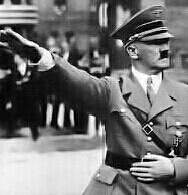This Forum is now inactive and has been replaced by a new Christogenea Forum. You may browse here but there are no updated threads or new posts since January 1st 2017. Forum members please see THIS NOTICE for information concerning your account at the new forum.
Significance of 'the field' in Matthew 13:44?
8 posts
• Page 1 of 1
Significance of 'the field' in Matthew 13:44?
Is there a special meaning to the field which the treasure is hid in this parable? I guess I'm wondering why it states that he went and bought the field rather than just taking the treasure?
If the treasure is the kingdom of Heaven, the true and racial interpretation of Scripture, then what does the field represent?
If the treasure is the kingdom of Heaven, the true and racial interpretation of Scripture, then what does the field represent?
Duty, Honour, Sacrifice.
-

Teutonic - Posts: 370
- Joined: Wed Nov 11, 2015 7:38 pm
- Location: Weimar America
Re: Significance of 'the field' in Matthew 13:44?
Maybe check this out: http://christogenea.org/podcasts/matthew-chapter-13
-

wmfinck - Site Admin
- Posts: 2775
- Joined: Fri Jul 03, 2009 2:09 am
Re: Significance of 'the field' in Matthew 13:44?
Teutonic wrote:I guess I'm wondering why it states that he went and bought the field rather than just taking the treasure? If the treasure is the kingdom of Heaven, the true and racial interpretation of Scripture, then what does the field represent?
While I think Bill's interpretation of this parable is valid, it doesn't directly address your question as to why the man didn't just take the treasure once he found it instead of buying the field first. Well, the owner of the field owns the field and anything under it, I assume. So in order to rightfully own the treasure he found, he'd have to buy the entire field. It's kind of like when you buy a piece of property, you must make sure you own the mineral rights also if that is important to you. If you find treasure on property that you don't own, that treasure is not yours even though you found it.
I agree with Bill that the field is the entire Bible, and the pearl, as I read it, is Christ. And we are to sell off all our worldly wealth to follow Him--concentrate all our wealth on that one Pearl. Great treasures are often found in the most inauspicious places--the greatest gold mines are often found beneath the desert floor, but that requires work and diligence to get at it, which is much like the treasure found in Scripture. And yes, the racial message of Scripture is one of the most precious of all treasures that can be found there--as is attested by how few of us ever find it.
I'm sure there's more to it, but that's a start...
"No Rothschild is English. No Baruch, Morgenthau, Cohen, Lehman, Warburg, Kuhn, Kahn, Schiff, Sieff or Solomon was ever born Anglo-Saxon. And it is for this filth that you fight. It is for this filth that you murdered your Empire. It is this filth that elects, selects, your politicians." -- Ezra Pound
-

EzraLB - Posts: 935
- Joined: Fri Jun 26, 2015 9:32 am
Re: Significance of 'the field' in Matthew 13:44?
Any opinions on Israel being the pearl and Christ being the man? He bought the field for the sake of the pearl not because he wants the field itself. And if he took it without buying it that would be stealing. I am not saying this is the correct intrerpretation I humbly suggest it for contemplation.
Matthew 13:38 The field is the world; the good seed are the children of the kingdom; but the tares are the children of the wicked one;
Revelation 5:9
And they sang a new song: "Worthy are You to take the scroll and open its seals, because You were slain, and by Your blood You purchased for God those from every tribe and tongue and people and nation.
1 Corinthians 7:23
You were bought at a price; do not become slaves of men.
Christ indeed gave everything he had to purchase us.
Following the parable of the pearl of great price is the parable of the drag net which is also cast out into the world. And separates the good and the bad.
Matthew 13:38 The field is the world; the good seed are the children of the kingdom; but the tares are the children of the wicked one;
Revelation 5:9
And they sang a new song: "Worthy are You to take the scroll and open its seals, because You were slain, and by Your blood You purchased for God those from every tribe and tongue and people and nation.
1 Corinthians 7:23
You were bought at a price; do not become slaves of men.
Christ indeed gave everything he had to purchase us.
Following the parable of the pearl of great price is the parable of the drag net which is also cast out into the world. And separates the good and the bad.
- Ben88
- Posts: 40
- Joined: Tue Nov 29, 2016 11:06 pm
Re: Significance of 'the field' in Matthew 13:44?
Just have been listening to your commentary Bill and its not as simple as it first seems. I have never heard this interpretation before. Very interesting!
- Ben88
- Posts: 40
- Joined: Tue Nov 29, 2016 11:06 pm
Re: Significance of 'the field' in Matthew 13:44?
Ben88 wrote:Any opinions on Israel being the pearl and Christ being the man? He bought the field for the sake of the pearl not because he wants the field itself. And if he took it without buying it that would be stealing. I am not saying this is the correct intrerpretation I humbly suggest it for contemplation.
Bill precluded that interpretation in his analysis of Matthew 13:44, which he cited above. He wrote,
"First, someone recently insisted upon forcing me to interpret the word field here as it is in the parable of the wheat and the tares, to mean the world. The premise was that the words had to be interpreted consistently throughout all of the parables. If the premise is accepted, the conclusion here is that Christ bought the world, since He must also be the man. But the conclusion is wrong, because the Scriptures tell us in many other places that Christ with His blood bought only Israel out from the world. Therefore the premise, that the field must be the world, must also be wrong – and it is. If we look at the first two parables in this chapter, the word seed appears in both, but in each it represents something different! The word seed represents the Gospel in the parable of the sower, but it represents people in the parable of the wheat and the tares. Therefore if seed represents two different things in the first two parables, field can represent two different things in these previous two parables, and I would insist that they must because Christ bought Israel, and not the world. Yet it is also evident that this parable does not necessarily have Christ as its subject at all, because neither do all of these parables have Christ as the subject."
"No Rothschild is English. No Baruch, Morgenthau, Cohen, Lehman, Warburg, Kuhn, Kahn, Schiff, Sieff or Solomon was ever born Anglo-Saxon. And it is for this filth that you fight. It is for this filth that you murdered your Empire. It is this filth that elects, selects, your politicians." -- Ezra Pound
-

EzraLB - Posts: 935
- Joined: Fri Jun 26, 2015 9:32 am
Re: Significance of 'the field' in Matthew 13:44?
EzraLB wrote:Ben88 wrote:Any opinions on Israel being the pearl and Christ being the man? He bought the field for the sake of the pearl not because he wants the field itself. And if he took it without buying it that would be stealing. I am not saying this is the correct intrerpretation I humbly suggest it for contemplation.
Bill precluded that interpretation in his analysis of Matthew 13:44, which he cited above. He wrote,
"First, someone recently insisted upon forcing me to interpret the word field here as it is in the parable of the wheat and the tares, to mean the world. The premise was that the words had to be interpreted consistently throughout all of the parables. If the premise is accepted, the conclusion here is that Christ bought the world, since He must also be the man. But the conclusion is wrong, because the Scriptures tell us in many other places that Christ with His blood bought only Israel out from the world. Therefore the premise, that the field must be the world, must also be wrong – and it is. If we look at the first two parables in this chapter, the word seed appears in both, but in each it represents something different! The word seed represents the Gospel in the parable of the sower, but it represents people in the parable of the wheat and the tares. Therefore if seed represents two different things in the first two parables, field can represent two different things in these previous two parables, and I would insist that they must because Christ bought Israel, and not the world. Yet it is also evident that this parable does not necessarily have Christ as its subject at all, because neither do all of these parables have Christ as the subject."
Yeah I stupidly said my opinion before listening to commentary Bill added earlier.
- Ben88
- Posts: 40
- Joined: Tue Nov 29, 2016 11:06 pm
8 posts
• Page 1 of 1
Return to New Testament Discussion
Who is online
Users browsing this forum: No registered users and 0 guests

